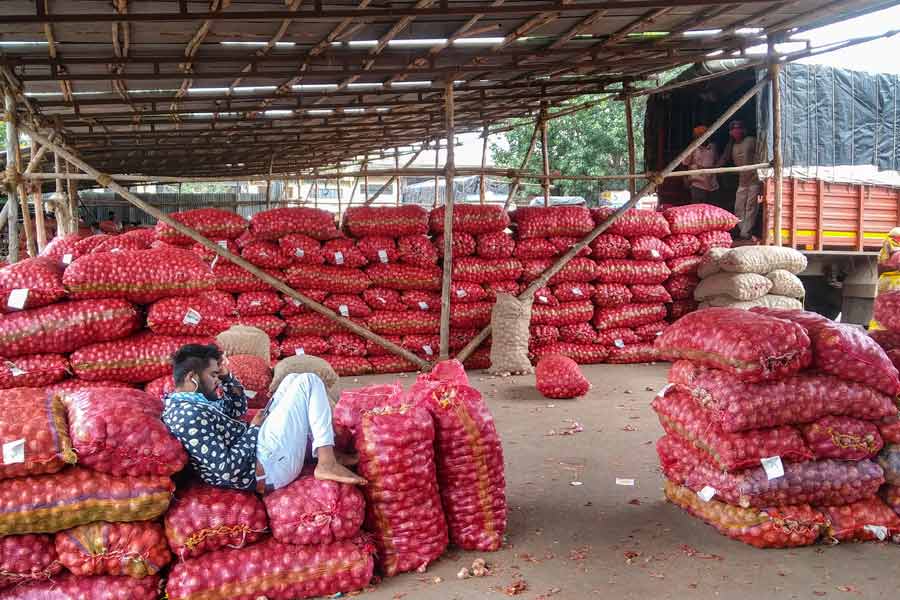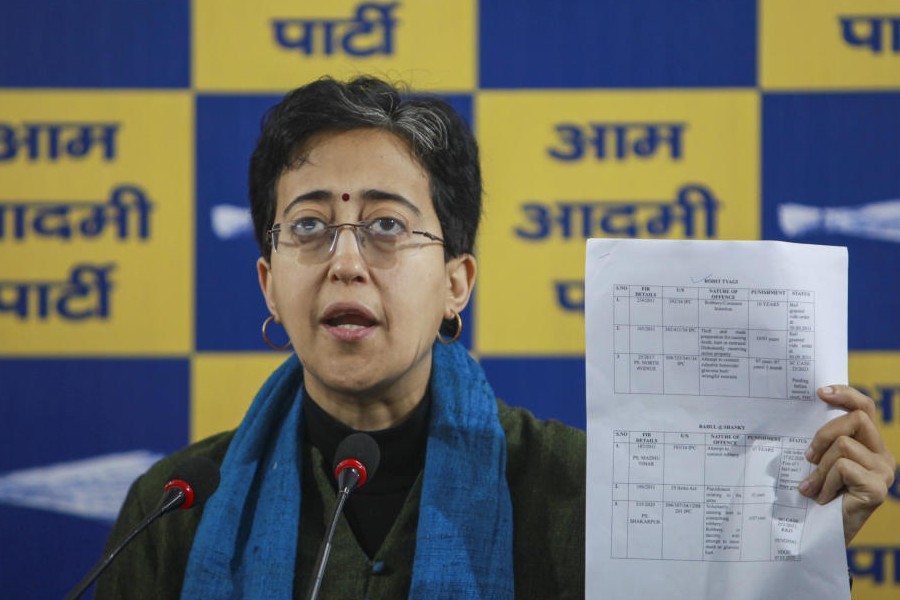The Centre on Saturday said it has allowed exports of 99,500 tonnes of onions, mainly sourced from Maharashtra, to six neighbouring countries despite the ban on shipments.
The Centre has also allowed exports of 2,000 tonnes of white onion cultivated, especially, for export markets in the Middle East and some European countries.
On December 8, 2023, the government banned export of onions.
In an official statement, the Ministry of Consumer Affairs, Food & Public Distribution said the government has "allowed export of 99,150 tonnes of onion to six neighbouring countries of Bangladesh, UAE, Bhutan, Bahrain, Mauritius and Sri Lanka".
The export prohibition has been imposed to ensure adequate domestic availability against the backdrop of estimated lower Kharif and Rabi crops in 2023-24 compared to the previous year.
The ban was imposed amid an increase in demand in the international market, it added.
The National Cooperative Exports Limited (NCEL), the agency for the export of onion to these countries, sourced the domestic onions to be exported through e-platform at L1 prices.
NCEL has supplied to the agency or agencies nominated by the government of the destination country at the negotiated rate on a 100 per cent advance payment basis.
The offer rate of NCEL to the buyers takes into account the prevailing prices in the destination market and also international and domestic markets.
The quota allocated for export to the six countries is being supplied as per requisition made by the destination country.
"As the largest producer of onion in the country, Maharashtra is the major supplier of onions sourced by NCEL for export," the statement said.
The government had also allowed the export of 2,000 tonnes of white onion cultivated, especially for export markets in the Middle East and some European countries.
"Being purely export-oriented, the production cost of the white onion is higher than other onions due to higher seed cost, adoption of good agricultural practice (GAP) and compliance to strict maximum residue limits (MRL) requirements," the statement said.
The procurement target for onion buffer out of Rabi crop 2024 under the Price Stabilisation Fund (PSF) of the Department of Consumer Affairs has been fixed at 5 lakh tonnes this year.
The Central agencies, like NCCF and NAFED are tying up local agencies like FPOs/FPCs/PACs to support the procurement, storage and farmers registration to begin the procurement of any store-worthy onion.
A high-level team of the Department of Consumer Affairs, NCCF and NAFED visited Nashik and Ahmednagar districts of Maharashtra from April 11-13, 2024, to create awareness among the farmers, FPOs/FPCs and PACs about the procurement of 5 lakh tonnes of onion for buffer stock.
To reduce the storage loss of onions, the department has decided to enhance the quantum of stocks to be irradiated and cold stored from 1,200 tonnes last year to over 5,000 tonnes this year, with technical support from BARC, Mumbai.
The pilot of onion irradiation and cold storage taken up last year has been found to have resulted in the reduction of storage loss to less than 10 per cent, the statement said.
In March, the Union Agriculture Ministry released the data for onion production.
As per the data, onion production in 2023-24 (First Advance Estimates) is expected to be around 254.73 lakh tonnes compared to around 302.08 lakh tonnes last year.
This is due to a decrease of 34.31 lakh tonne output in Maharashtra, 9.95 lakh tonne in Karnataka, 3.54 lakh tonne in Andhra Pradesh and 3.12 lakh tonne in Rajasthan, the data showed.
Except for the headline, this story has not been edited by The Telegraph Online staff and has been published from a syndicated feed.











